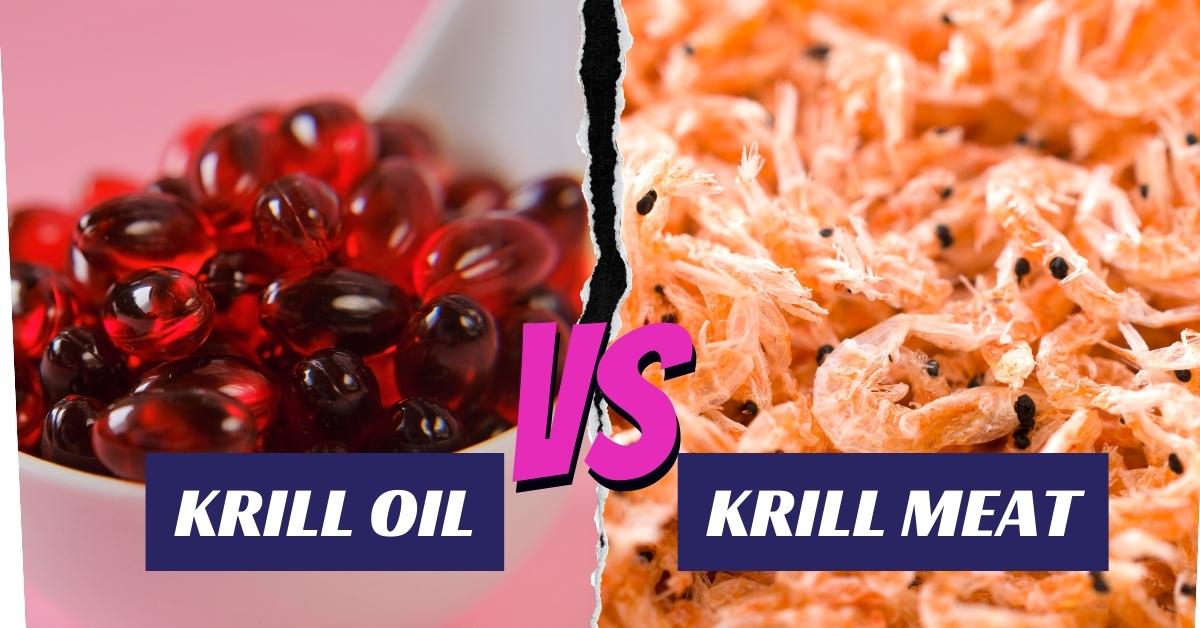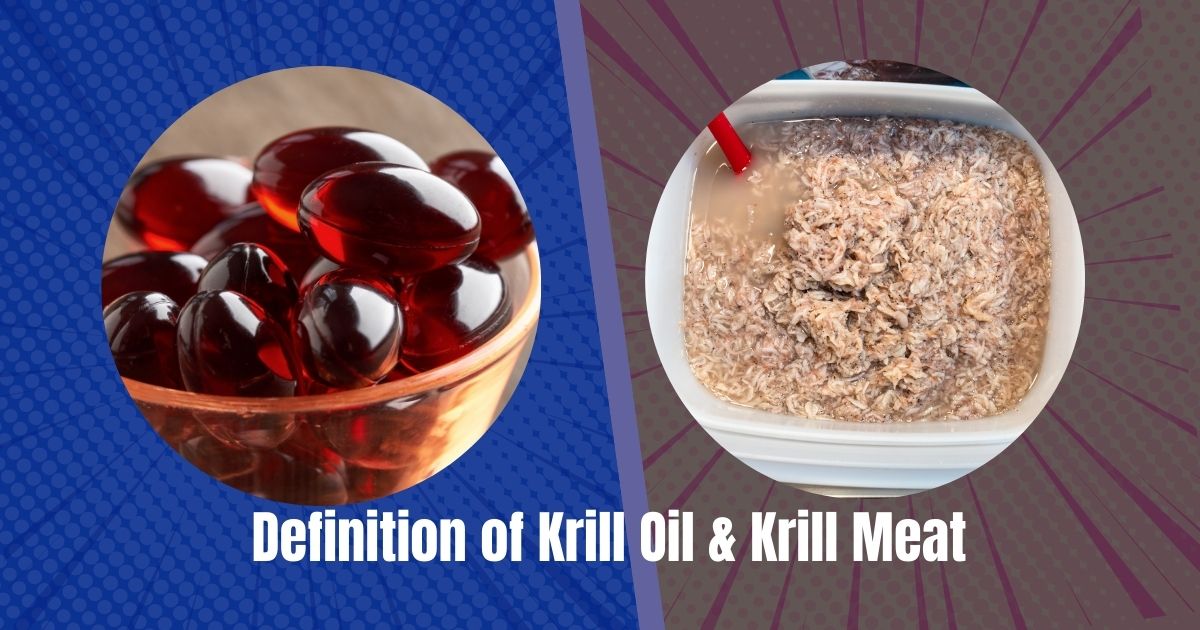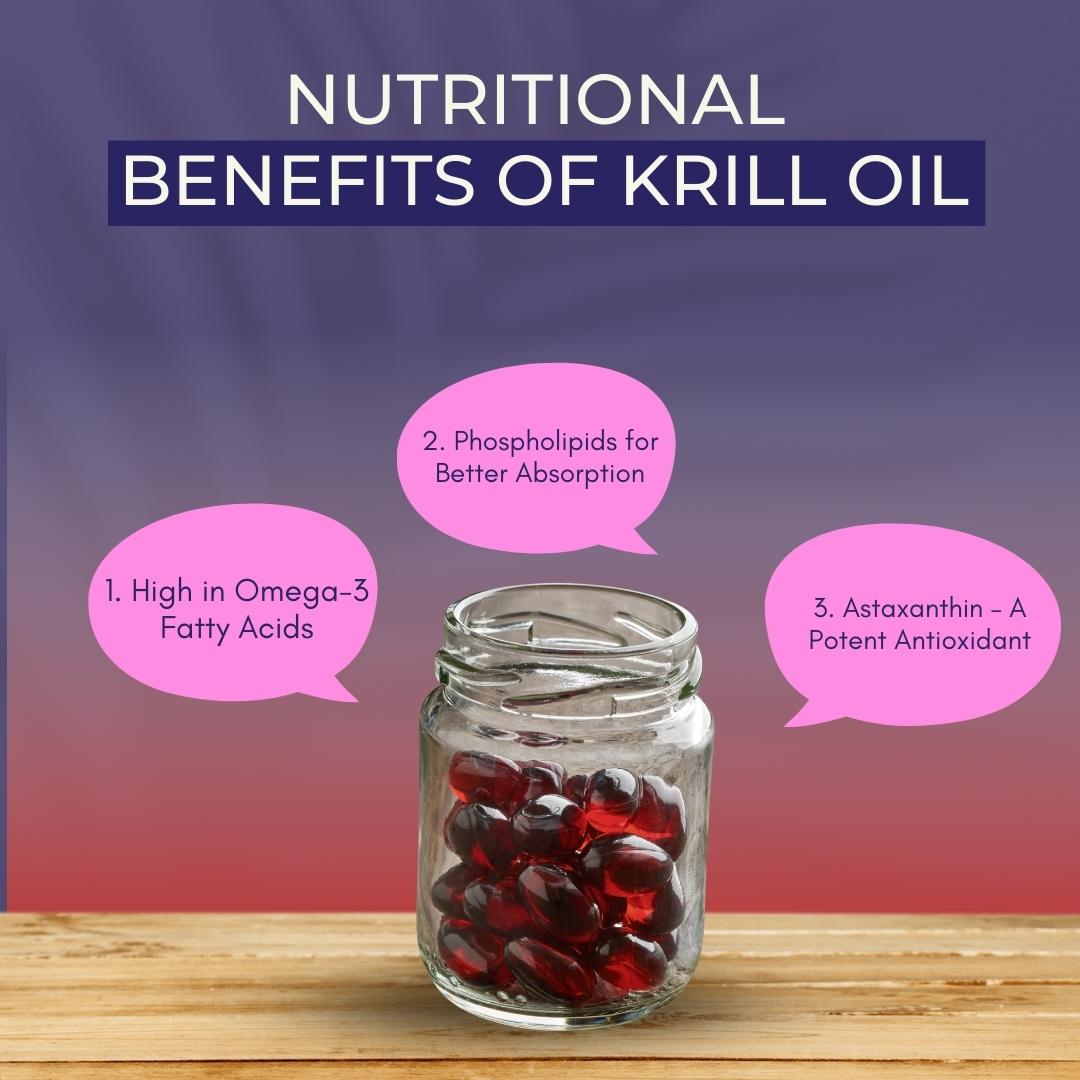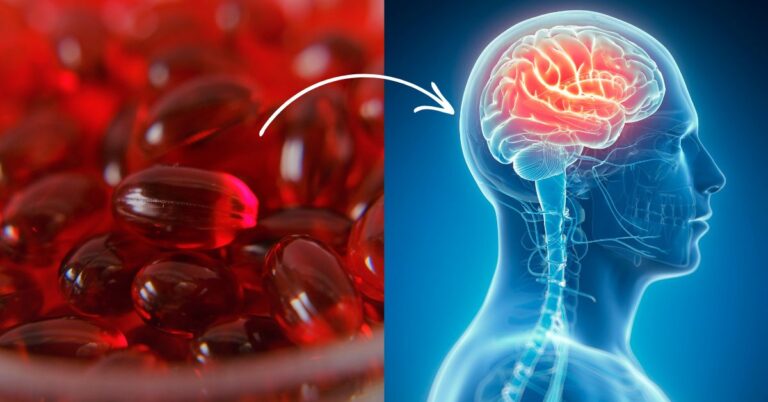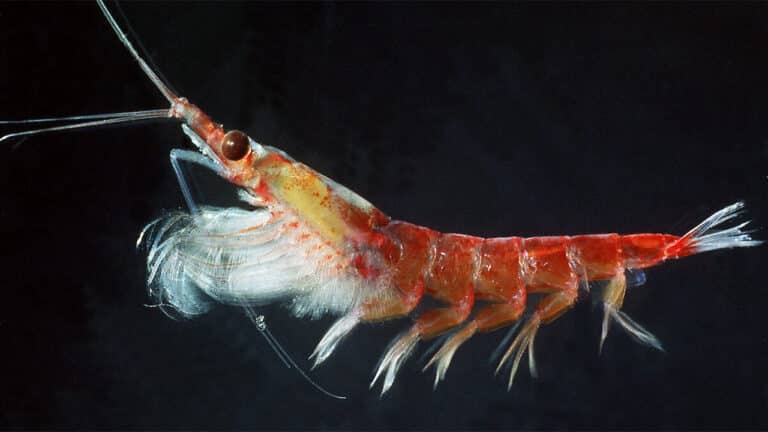Krill oil and krill meat, derived from the same tiny ocean creature, offer distinct nutritional benefits catering to different health needs.
While krill oil is renowned for its rich supply of omega-3 fatty acids and powerful antioxidants, krill meat stands out as a lean, high-quality protein source with essential vitamins and minerals.
In this blog, we’ll dive into the key nutritional differences between krill oil and krill meat, helping you understand how each can support your health and lifestyle choices. Whether you’re after heart-healthy fats or a protein-packed addition to your meals, we’ve got you covered!
Definition of Krill Oil & Krill Meat
Krill Oil
Krill oil is an extract from tiny crustaceans called krill, found in the cold waters of the ocean. It’s known for its high levels of omega-3 fatty acids, specifically EPA and DHA, which are essential for heart and brain health. What sets krill oil apart from other sources of omega-3s, like fish oil, is its superior absorption in the body, making it more effective. It also contains astaxanthin, a powerful antioxidant that helps protect your cells from damage and supports overall wellness.
Krill Meat
Krill meat is the edible flesh of krill, packed with high-quality protein and essential nutrients. It’s a lean, low-fat food that provides vitamins and minerals like vitamin B12, iron, and zinc, making it a nutritious addition to your diet. Krill meat is a sustainable and versatile alternative to other proteins, perfect for those looking to increase their protein intake without the added fats found in traditional meats.
Nutritional Benefits of Krill Oil & Krill Meat
Krill oil and krill meat each offer unique nutritional benefits, making them valuable additions to your diet. While krill oil is rich in omega-3 fatty acids, antioxidants, and supports heart and brain health, krill meat provides high-quality protein, essential vitamins, and minerals for muscle repair and overall wellness. Both options are nutrient-dense, yet cater to different health needs.
Nutritional Benefits of Krill Oil
1. High in Omega-3 Fatty Acids
Krill oil is a rich source of EPA (eicosapentaenoic acid) and DHA (docosahexaenoic acid), two essential omega-3 fatty acids that promote heart health, reduce inflammation and support brain function. These fatty acids help maintain a healthy balance of fats in your body, improve cholesterol levels, and protect against heart disease. EPA and DHA also play a key role in cognitive function, helping improve focus, memory, and overall brain health.
2. Phospholipids for Better Absorption
Unlike fish oil, krill oil’s omega-3s are attached to phospholipids, making them easier for your body to absorb. This means you get more omega-3 benefits from a smaller dose, making it a more efficient supplement for heart, brain, and joint health.
3. Astaxanthin – A Potent Antioxidant
Krill oil contains astaxanthin, a powerful antioxidant that helps protect your cells from oxidative stress and damage caused by free radicals. This antioxidant supports skin health, helps reduce signs of aging, and boosts your immune system. Astaxanthin also offers protection against eye strain and promotes healthy vision.
Nutritional Benefits of Krill Meat
Krill meat, although different from krill oil, provides an excellent array of nutritional benefits that focus primarily on protein and essential nutrients. Here’s why krill meat is a great addition to your diet:
1. High-Quality Protein
Krill meat is an outstanding source of lean protein, providing all the essential amino acids your body needs for muscle growth, repair, and overall health. This makes it a fantastic choice for individuals looking to maintain or increase their protein intake without consuming excess fat or calories.
2. Low in Fat and Calories
Krill meat is incredibly low in fat, especially unhealthy fats, while still being packed with nutrients. With only around 90-100 calories per 100g, krill meat provides a lean, nutritious option for those aiming to stay healthy without overloading on calories.
3. Rich in Essential Vitamins
Krill meat is a great source of vitamin B12, which is essential for energy production and nervous system function. It also contains vitamin B6, which supports brain health and aids in the production of serotonin, the “feel-good” hormone. These vitamins contribute to better mood, higher energy levels, and overall wellness.
Krill meat is rich in minerals like iron and zinc. Iron supports the production of red blood cells and helps prevent anemia, while zinc is crucial for immune function, wound healing, and maintaining healthy skin. These minerals help maintain overall health and vitality, especially for those who may not get enough from other sources.
Nutritional Breakdown of Krill Oil vs. Krill Meat
| Nutrient | Krill Oil (per 100g) | Krill Meat (per 100g) |
| Omega-3 Fatty Acids (EPA & DHA) | 12-15g | N/A |
| Phospholipids | 40-50g | N/A |
| Astaxanthin (Antioxidant) | 200-300 µg | N/A |
| Protein | N/A | 20-25g |
| Total Fat | 65-70g (healthy fats) | 1-2g (low fat) |
| Vitamin B12 | N/A | 4-5 µg |
| Vitamin B6 | N/A | 0.5 mg |
| Iron | N/A | 2-3 mg |
| Zinc | N/A | 1-2 mg |
| Calories | 700-750 kcal | 90-100 kcal |
Krill Oil vs. Krill Meat: Which is Right for You?
Krill oil and krill meat serve different nutritional purposes, but both offer significant health benefits. If we compare them side by side, krill oil shines in delivering heart-healthy omega-3s, which support cardiovascular function and brain health. The phospholipid form of these fats means better absorption and higher bioavailability, giving krill oil an edge over other omega-3 supplements.
Krill meat, on the other hand, is a protein powerhouse. It provides all the essential amino acids needed for muscle growth and recovery while being extremely low in fat. For individuals looking to reduce their fat intake without sacrificing protein, krill meat is a perfect fit. It also has the added bonus of offering essential vitamins and minerals like B12 and iron, which aren’t present in krill oil.
Which is Right for You?
The choice between krill oil and krill meat depends on your health goals:
- Choose Krill Oil if you’re focused on boosting your intake of omega-3s for heart health, brain function, or to reduce inflammation. It’s also a great option if you’re looking for a supplement that provides antioxidants like astaxanthin.
- Choose Krill Meat if you’re after a lean, nutrient-rich protein source that can fit into a low-calorie, low-fat diet. It’s especially beneficial if you’re looking to support muscle growth, improve energy levels, or incorporate more vitamins and minerals like B12 and iron into your diet.
Both krill oil and krill meat are excellent choices for improving your health, and depending on your specific needs, you might even benefit from incorporating both into your routine.
Conclusion
Krill oil and krill meat, though derived from the same small ocean creature, offer distinct and powerful nutritional benefits that cater to different health goals. Krill oil excels in providing heart-healthy omega-3 fatty acids and antioxidants like astaxanthin, making it ideal for those focused on cardiovascular, brain, and joint health.
On the other hand, krill meat is a lean, high-quality protein source packed with essential vitamins and minerals, perfect for individuals seeking to boost muscle growth, energy levels, and overall wellness with a low-calorie, low-fat option.
Whether you choose krill oil for its superior absorption of omega-3s or krill meat for its protein and nutrient density, both can support your journey to better health. For a well-rounded approach, incorporating both into your routine may provide the ultimate nutritional boost.
FAQ
How much krill oil is equal to fish oil?
Krill oil is more efficiently absorbed than fish oil, so you typically need less to achieve the same benefits. A standard dose of krill oil (about 1,000 mg) can provide similar omega-3 benefits as 2,000-3,000 mg of fish oil.
Does krill oil raise LDL?
Krill oil has been shown to improve lipid profiles, including lowering LDL cholesterol for many people. However, individual results may vary, and it’s best to monitor cholesterol levels while using any omega-3 supplement.
Is krill oil stronger than fish oil?
Krill oil is considered stronger than fish oil due to its higher bioavailability. The omega-3s in krill oil are absorbed more efficiently because they are bound to phospholipids, making it more potent in smaller doses.
Is there omega-3 in krill meat?
Yes, krill meat contains small amounts of omega-3 fatty acids, but not as much as krill oil. The primary nutritional benefit of krill meat is its high protein content, while krill oil is more focused on omega-3 delivery.
Is krill meat good for you?
Krill meat is highly nutritious, offering lean, high-quality protein, and essential vitamins and minerals like vitamin B12, iron, and zinc. It’s low in fat and calories, making it an excellent addition to a healthy, balanced diet.
What meat do krill eat?
Krill are not carnivorous and do not eat meat. They primarily feed on phytoplankton and zooplankton, tiny organisms found in the ocean, which are rich in nutrients and form the base of the marine food chain.

